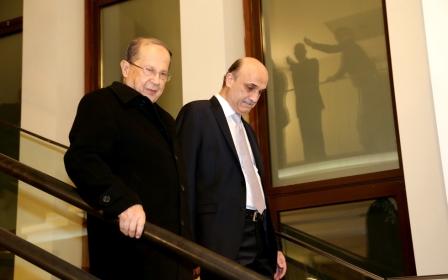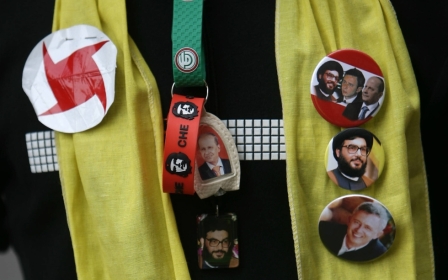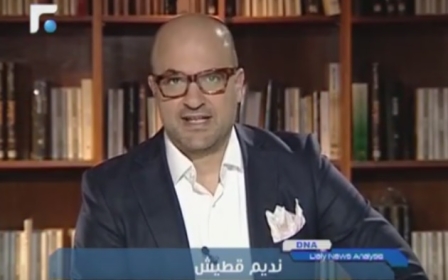Of arms and men: Saudi Arabia stops military aid to Lebanon

The relationship between Lebanon and the Kingdom of Saudi Arabia extends for well over nine decades. Both countries have worked throughout the years to ensure the growth of both socioeconomic and political relations.
The Lebanese, as their seafaring and pioneering spirit dictates, were amongst the first to migrate to the Kingdom of Saudi Arabia and join in the developing of the budding kingdom at the time.
In return, Saudi Arabia reciprocated by supporting the Lebanese economy in more ways than one, either through brokering the end of the civil war in 1989 with the Taef Accord, or by supporting the post-war reconstruction efforts of the trailblazing prime minister the late Rafik al-Hariri. However, this largess ended when the kingdom recently announced the suspension of a $4 billion grant it had allocated to the Lebanese Armed Forces (LAF) and security agencies.
The outward reason for this move was the Lebanese Foreign Minister Joubran Bassil’s refusal to vote on the Arab League resolution condemning Iran after the Saudi embassy in Iran was stormed by protesters and torched.
This diplomatic debacle perpetrated by Bassil, Michael Aoun’s son-in-law and Hezbollah’s main contender to the vacant Lebanese presidency, was condemned by the Lebanese government who saw in this reckless unsanctioned move a hostile act that would endanger Lebanon’s standing vis-a-vis the Arab consensus.
However, the decision to punish Bassil as well as the Lebanese state should not be viewed, as some are assuming, as a mere vindictive move but rather as a decision by KSA and its allies to break with its long-lasting tradition of appeasing its enemies who have thus far used the Lebanese state as a human shield.
Hezbollah, a main component of the Lebanese government, has taken every opportunity to attack and slur Saudi Arabia, with Hassan Nasrallah going as far as to call for the death to the House of Saud. Nasrallah has done so while knowing very well that it was the al-Saud and other Gulf states who pledged millions of dollars for the reconstruction of Shia areas following the 2006 war. Moreover, Nasrallah's anti-Gulf rhetoric has increased the ever-growing fears of the Lebanese residing in the GCC countries who are now under risk of deportation for merely being Shia.
The Kingdom of Saudi Arabia has since its early days dealt with Lebanon through official government channels and the majority of grants and loans, contrary to what some might promote, went into empowering the Lebanese state rather than just the Sunni community.
Rafik Hariri and his whole reconstruction project relied on a cross-sectarian base which transcended the existing sectarian and primordial system. Therefore why would KSA punish the Lebanese army - one of the pillars of the Lebanese state which is regarded by many Lebanese as their only chance of balancing Hezbollah arms and its Iranian agenda?
It seems that the current Saudi leadership has realised that the army, just like every other Lebanese institution, feeds on sectarianism and thus is not immune from the virtual domination that Hezbollah has established on all vital parts of the country. And while some accuse Hezbollah of trying to take over the LAF, the former would rather hollow out this body and keep it as a façade and perhaps use it when needed.
These facts in addition to the failure of Saudi Arabia’s main allies in Lebanon to face up to these challenges has disenchanted Riyadh from further investing in a hostile or a neutral entity such as the LAF. But more importantly perhaps is that Saudi Arabia has taken this punitive move to send a message to its allies, rather than its enemies, that their political performance has not lived up to local as well as regional challenges.
Halting aid at this moment in time, with Saudi Arabia on a war footing, amounts to a roll call to see who will join and who will falter when the time comes to not only speak but act against Iran both in Lebanon and the region.
Acting does not necessarily entail a call to arms, but rather an unambiguous rhetoric and an even clearer strategy. A plan that does not entail nominating Michael Aoun for the presidency, such as the Lebanese Forces recently did, nor should it include bickering with other Lebanese factions over the spoils of the waste management contracts.
The violent reaction of most Lebanese to the Saudi decision might well have been the desired goal of the kingdom. On Sunday, the resignation of Ashraf Rifi, the minister of justice, protesting the continued domination of Hezbollah over the Lebanese state and the popular rejoicing over this resignation, sent a clear message to Hezbollah and Iran that Lebanon will never fully acquiesce to their control.
While this might be part of a wider Saudi strategy both in Lebanon and the region, the Lebanese ought to hope for the best but still prepare for the worst.
The Lebanese army might be able to sustain itself with aid from elsewhere, but the real test in the near future will be the ability of the Lebanese economy to persevere if and when Saudi Arabia and the other Arab brethren decide to really punish Lebanon.
- Makram Rabah is a PhD candidate at Georgetown University’s history department. He is the author of A Campus at War: Student Politics at the American University of Beirut, 1967–1975 and a regular columnist for Now Lebanon.
The views expressed in this article belong to the author and do not necessarily reflect the editorial policy of Middle East Eye.
Photo: A Lebanese Army Commando eats a live snake during a security convention in Beirut on 9 September, 2015 (AFP).
New MEE newsletter: Jerusalem Dispatch
Sign up to get the latest insights and analysis on Israel-Palestine, alongside Turkey Unpacked and other MEE newsletters
Middle East Eye delivers independent and unrivalled coverage and analysis of the Middle East, North Africa and beyond. To learn more about republishing this content and the associated fees, please fill out this form. More about MEE can be found here.





